
Electric cars inside BYD's factory in Rayong, Thailand. Photo: REUTERS/TTXVN
The topic of BYD is dominating everyone's lunch in China, the world's largest auto market and rapidly gaining market share globally (except the US, of course, due to longstanding trade restrictions on imports from China).
According to CNN, on March 24, BYD reported $107 billion in revenue for 2024 — surpassing the $100 billion mark for the first time and surpassing Tesla’s annual revenue by about $10 billion. That milestone came a week after BYD unveiled a super-fast charging system that it said would give its latest electric vehicle a 250-mile range after plugging in for just five minutes.
BYD's Hong Kong-listed shares have risen more than 50% this year.
Is Tesla sliding into crisis?
But the Chinese company's explosive news week could be a blow to Tesla CEO Elon Musk, who has scoffed at the idea of BYD as a competitor to the "giant" he founded.
BYD’s moment of light comes just as Tesla is sliding into crisis. Tesla investors have dumped their shares for nine straight weeks, largely for old-fashioned business reasons: Global sales fell for the first time last year and are not doing so well this year; Competitors are eating into the company’s market share, especially in China; Tesla’s core products haven’t seen a significant update in years, and a long-promised low-cost model has yet to materialize; and while Tesla is an electric-vehicle pioneer, it is lagging behind Google’s Waymo in the race to autonomous driving.
But that's not all the reasons.
Mr. Musk’s “extracurricular” work as head of President Donald Trump’s Office of Government Effectiveness has turned the Tesla brand—once a favorite of the upper-class left—into a symbol of the American right. Used Tesla prices are also plummeting even as demand for used electric vehicles increases.
The White House responded with a series of stunts — a direct endorsement from the president on the South Lawn; the commerce secretary advocating for Tesla stock on Fox News; the FBI threatening those who vandalized Tesla cars with terrorism charges.
Tesla shares began to recover on March 21, after Mr. Musk called an all-hands meeting on the evening of March 20, in which he urged employees to hold on to their shares. Retail investors piled in, sending the stock up 5% on March 21 and 12% on March 24.
But Tesla shares are still 40% below their record high in December, and some analysts have tempered their expectations for this year.
BYD isn’t the only Chinese competitor cutting into Tesla’s market share. In Europe, Tesla sales fell 44% in February, while Chinese brands overall rose 82%, according to a report from JATO, an automotive data analytics firm.
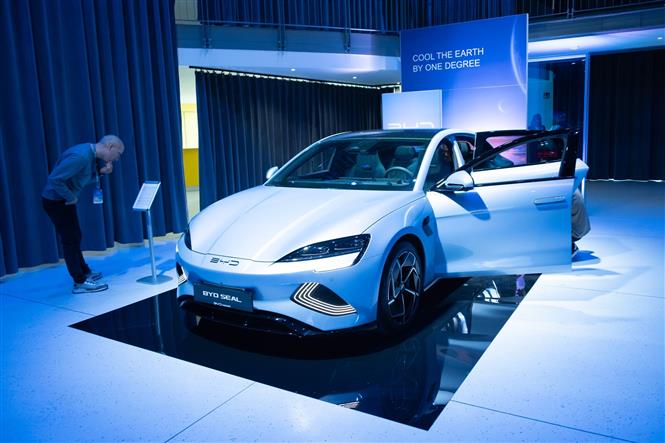
An electric car model of Chinese electric car manufacturer BYD is displayed in Budapest, Hungary. Photo: THX/TTXVN
Part of that decline is related to a gap in the overhaul of Tesla’s best-selling Model Y, JATO analyst Felipe Munoz said. Added to that is Elon Musk’s support for a far-right German party. Sales in Germany, Tesla’s biggest European car market, fell 75% last month.
Chinese electric cars have many competitive advantages
Perhaps the biggest threat BYD poses to Tesla: It has been rolling out sleek, technologically advanced vehicles—both electric and hybrid—at a fraction of the cost of its American rivals. BYD electric cars now start at less than $10,000 in China, while Tesla’s Model 3, its cheapest model, costs three times as much, at $32,000.
BYD on March 24 launched a new electric vehicle with specifications that are almost identical to the Tesla Model 3 at half the price. The new Qin L electric vehicle comes with BYD's intelligent driving technology and has a driving range of more than 520km, starting at just $16,500.
Tesla is reportedly working on a smaller, cheaper version of the Model Y to regain some of its lost market share in China. But mass production is not expected to begin until 2026, according to unnamed sources cited by Reuters.
In short, Elon Musk has been underestimating BYD (the name stands for “Build Your Dreams”) since 2011, when he dismissed a Bloomberg reporter’s question about whether the Chinese automaker posed a threat to Tesla. “Have you seen their cars?” he asked, sneeringly.
But more than a decade later, BYD has surpassed Tesla in annual sales and disrupted the global electric vehicle market. Tesla remains the best-selling electric vehicle maker in the United States, thanks to government tariffs designed to protect domestic manufacturing. Without those trade barriers, BYD could quickly become Elon Musk’s worst nightmare in America.



![[Photo] General Secretary To Lam receives Japanese Ambassador to Vietnam Ito Naoki](https://vstatic.vietnam.vn/vietnam/resource/IMAGE/2025/4/3/3a5d233bc09d4928ac9bfed97674be98)
![[Photo] A brief moment of rest for the rescue force of the Vietnam People's Army](https://vstatic.vietnam.vn/vietnam/resource/IMAGE/2025/4/3/a2c91fa05dc04293a4b64cfd27ed4dbe)
![[Photo] Prime Minister Pham Minh Chinh chairs meeting after US announces reciprocal tariffs](https://vstatic.vietnam.vn/vietnam/resource/IMAGE/2025/4/3/ee90a2786c0a45d7868de039cef4a712)
![[Photo] Ho Chi Minh City speeds up sidewalk repair work before April 30 holiday](https://vstatic.vietnam.vn/vietnam/resource/IMAGE/2025/4/3/17f78833a36f4ba5a9bae215703da710)
![[Photo] Prime Minister Pham Minh Chinh chairs the first meeting of the Steering Committee on Regional and International Financial Centers](https://vstatic.vietnam.vn/vietnam/resource/IMAGE/2025/4/3/47dc687989d4479d95a1dce4466edd32)









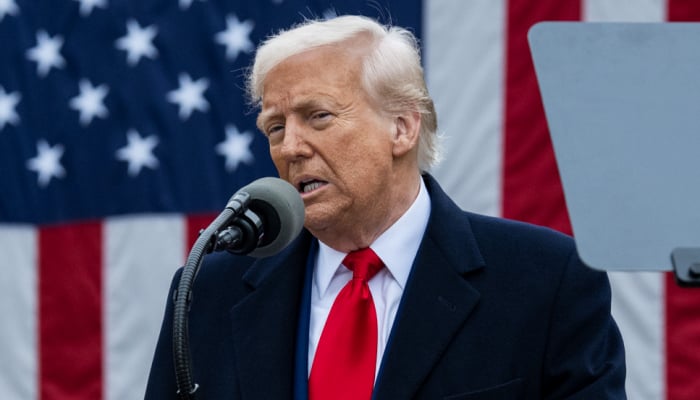

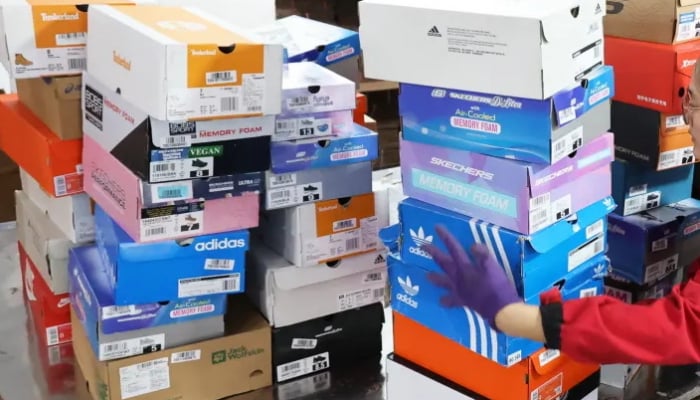

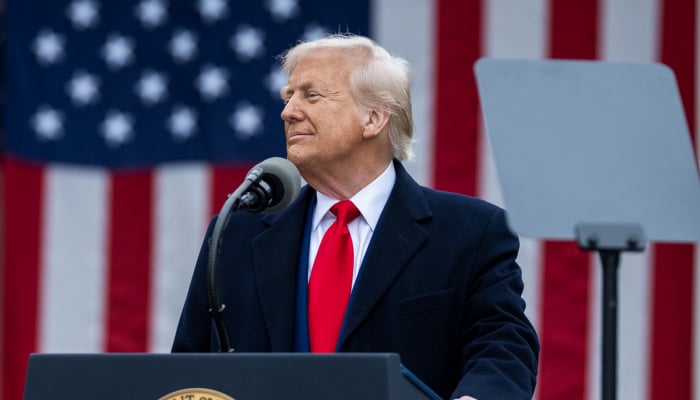






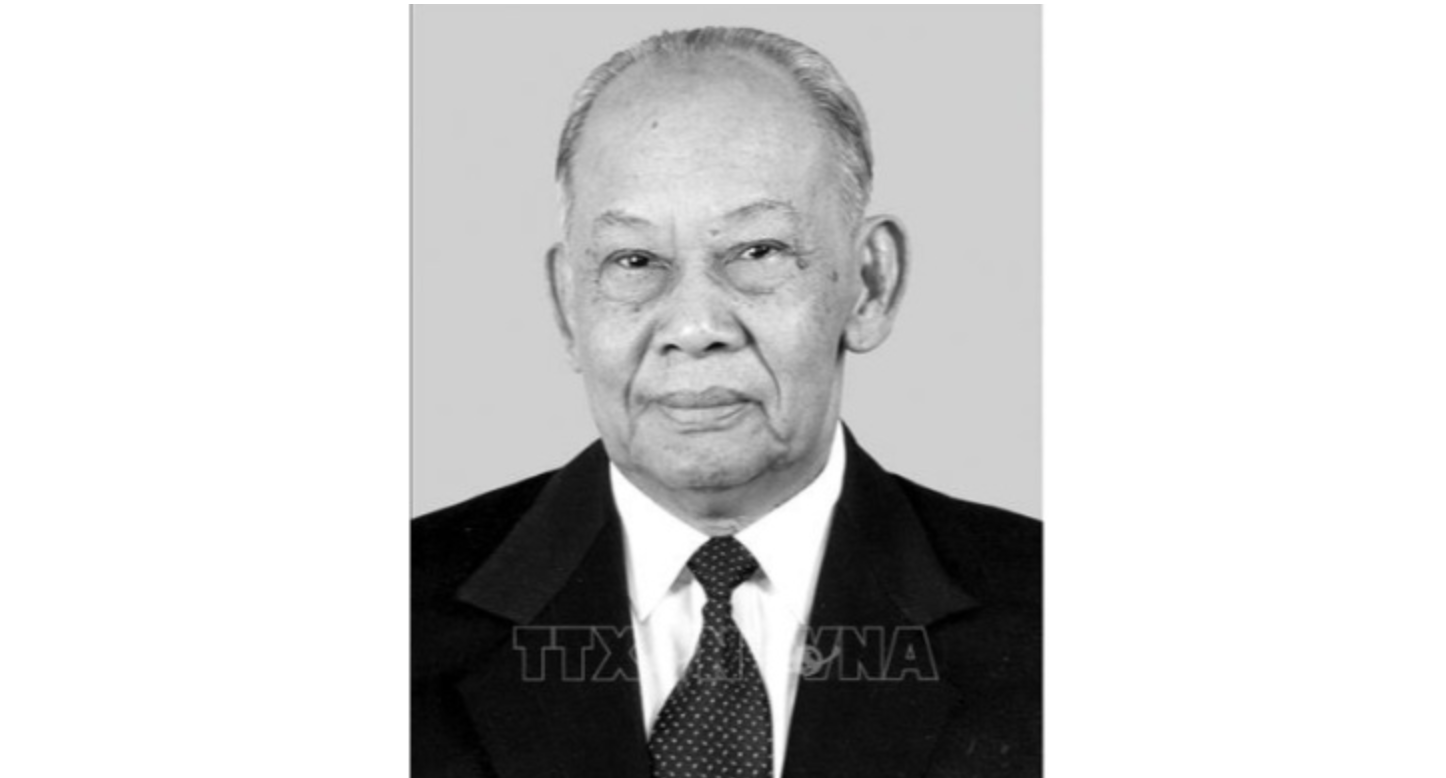

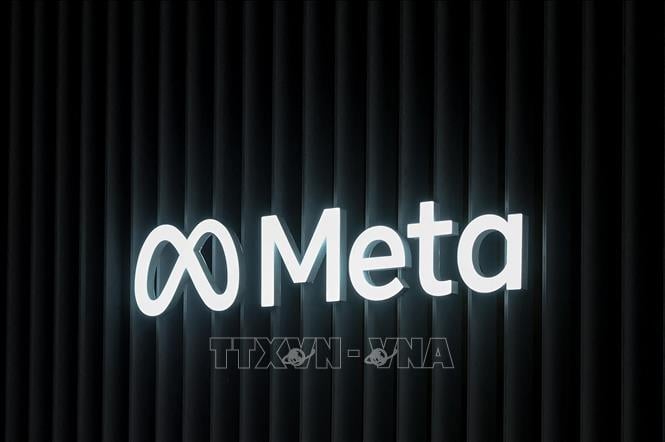
















































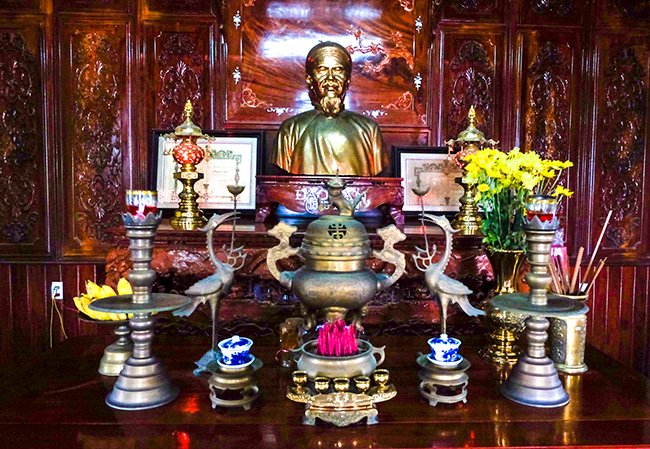
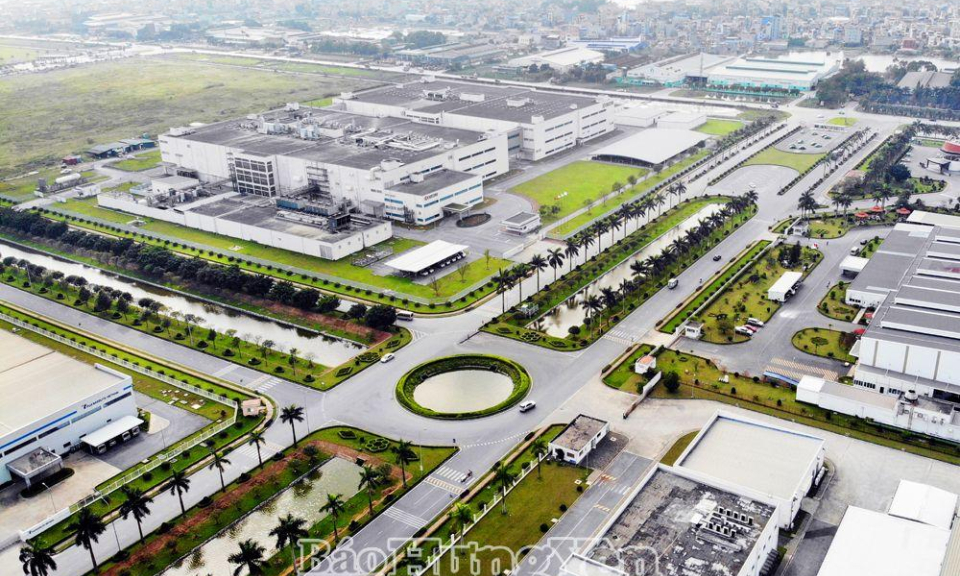













Comment (0)